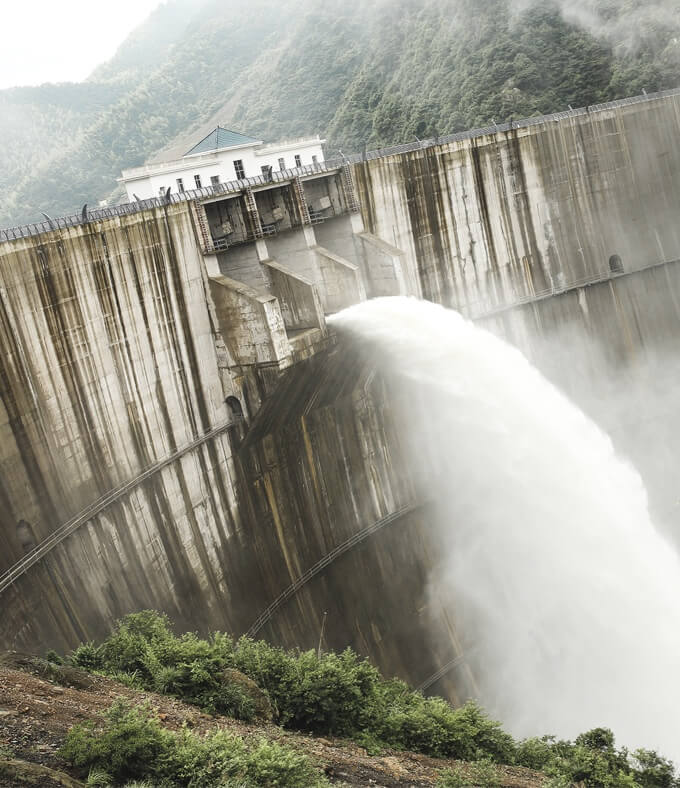SERVICES WITHIN THIS AREA
River, Lake & Water Bodies Rejuvenation
The action or process of making Water bodies, Rivers & lakes look or feel better, younger, or more vital. Water bodies like rivers, lakes & beaches have been maintained by TUSPL from last so many years & creating an awareness for the people.
Environmental Impact Studies, Assessment, Management & Mitigation Plans
Environmental Impact studies is the assessment of the environmental consequences (positive and negative) of a plan, policy, program, or actual projects prior to the decision to move forward with the proposed action. It is a tool designed to identify and predict the impact of a project on the bio-geophysical environment and on man's health and well-being, to interpret and communicate information about the impact, to analyze site and process alternatives and provide solutions to sift out, or abate/mitigate the negative consequences on man and the environment.
Climate Change Resilience
Populations globally face increasing risks brought by climate change. Our unique skills set and experience equip us to assist in managing them. We advise on policy, identify measures to mitigate climate impacts and guide adaptation to achieve asset and service resilience. It can be generally defined as the capacity for a socio-ecological system to: absorb stresses and maintain function in the face of external stresses imposed upon it by climate change and adapt, reorganize, and evolve into more desirable configurations that improve the sustainability of the system, leaving it better prepared for future climate change impacts.
Coastal Planning, Management & Clearances
The planning for coastal as well managing are the science-based tools that regions can use to address specific ocean management challenges and advance their goals for economic development and conservation. Whether for recreation and boating, fishing and processing, marine transportation or oil and gas, the demands are growing. With so much reliance on these ocean areas, the need for effective marine spatial planning and management has never been more important.
Mangrove Conservation
Mangroves nourish biodiversity as nursery grounds for many coastal and marine species and support fisheries. They buffer coastal communities against extreme weather events such as hurricanes, stabilise coastlines and slow or reduce soil erosion. TUSPL have the capability of achieving sustainable coastal area development & reducing impact of public utilities & civic amenities development in Coastal areas by closely associating with the mangroves Cell Forest Department government of Maharashtra and MOEFCC in achieving sustainable development.
Hazard and Operability Study (HAZOP)
A hazard and operability study (HAZOP) is a structured and systematic examination of a complex planned or existing process or operation in order to identify and evaluate problems that may represent risks to personnel or equipment. The intention of performing a HAZOP is to review the design to pick up design and engineering issues that may otherwise not have been found.
Forest Management
Forest management is a branch of forestry concerned with the overall administrative, economic, legal, and social aspects, as well as scientific and technical aspects, such as silviculture, protection, and forest regulation. TUSPL is working closely the forest department for sustainable development for the forest & other areas with trees all around.
Bio Diversity Studies & Management
Biological diversity means the variability among living organisms from all sources including, inter alia, terrestrial, marine and other aquatic ecosystems and the ecological complexes of which they are part; this includes diversity within species, between species and of ecosystems. The management of Biodiversity can be done by Managing the sustainable forest and harvesting Trees, and the Ecological Restoration.
Noise Mapping
Noise mapping is a graphic representation of the sound level distribution and the propagation of send waves in a given region, for a defined period.
Water & Air shed Management
Watershed management is a term used to describe the process of implementing land use practices and water management practices to protect and improve the quality of the water and other natural resources within a watershed by managing the use of those land and water resources in a comprehensive manner.
Urban Forestry
Urban forestry is the care and management of single trees and tree populations in urban settings for the purpose of improving the urban environment.
Soil Remediation
Soil remediation deals with the removal of pollution or contaminants from environmental media such as soil, groundwater, sediment, or surface water.
Esteemed clients we’ve worked with



